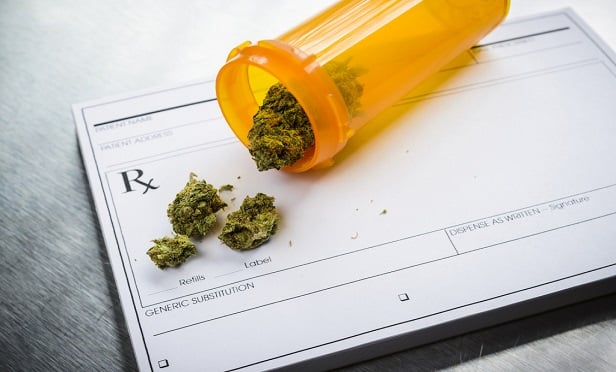 If the tea leaves are being read closely, they seem to be saying that medical marijuana will be found to be reasonable and necessary medical care for injured workers in Pennsylvania, provided they have a qualifying condition under the state's Medical Marijuana Act (MMA), such as severe chronic pain or opioid use disorder. (Credit: Shutterstock)
If the tea leaves are being read closely, they seem to be saying that medical marijuana will be found to be reasonable and necessary medical care for injured workers in Pennsylvania, provided they have a qualifying condition under the state's Medical Marijuana Act (MMA), such as severe chronic pain or opioid use disorder. (Credit: Shutterstock)
Make no mistake about it, medical marijuana is no longer a trend. It is part of the mainstream. It is now legal in 33 states, both red and blue. Dispensaries are thriving throughout the nation, including in Pennsylvania, where medical cannabis has been legal since 2016. Its proponents champion it as a weapon in the fight against the opioid crisis, touting it as an effective pain relief option to highly addictive narcotic drugs like OxyContin. Moreover, it is gaining acceptance as a treatment method for conditions frequently seen in workers' compensation cases, such as neuropathy, post-traumatic stress disorder and chronic pain. It is also increasingly being found to be a reasonable and necessary medical treatment for workers' compensation claimants in multiple jurisdictions around the country.
Want to continue reading?
Become a Free PropertyCasualty360 Digital Reader
Your access to unlimited PropertyCasualty360 content isn’t changing.
Once you are an ALM digital member, you’ll receive:
- All PropertyCasualty360.com news coverage, best practices, and in-depth analysis.
- Educational webcasts, resources from industry leaders, and informative newsletters.
- Other award-winning websites including BenefitsPRO.com and ThinkAdvisor.com.
Already have an account? Sign In
© 2024 ALM Global, LLC, All Rights Reserved. Request academic re-use from www.copyright.com. All other uses, submit a request to [email protected]. For more information visit Asset & Logo Licensing.








